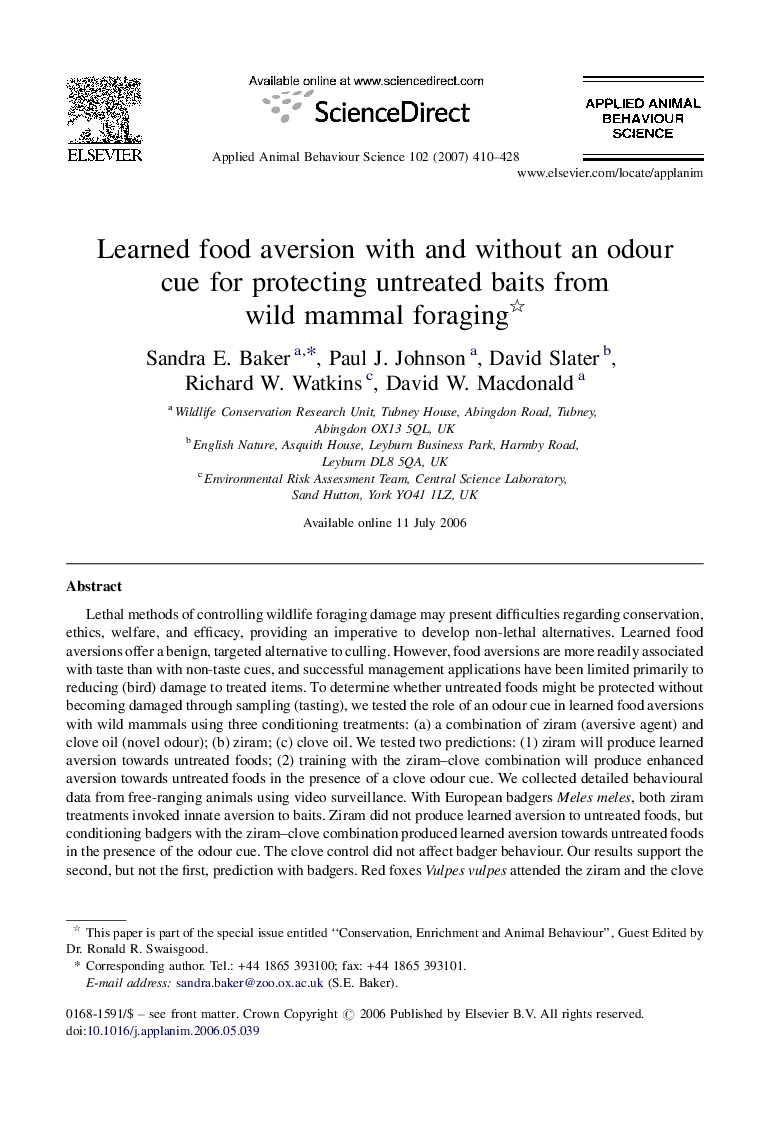| کد مقاله | کد نشریه | سال انتشار | مقاله انگلیسی | نسخه تمام متن |
|---|---|---|---|---|
| 4524053 | 1625437 | 2007 | 19 صفحه PDF | دانلود رایگان |

Lethal methods of controlling wildlife foraging damage may present difficulties regarding conservation, ethics, welfare, and efficacy, providing an imperative to develop non-lethal alternatives. Learned food aversions offer a benign, targeted alternative to culling. However, food aversions are more readily associated with taste than with non-taste cues, and successful management applications have been limited primarily to reducing (bird) damage to treated items. To determine whether untreated foods might be protected without becoming damaged through sampling (tasting), we tested the role of an odour cue in learned food aversions with wild mammals using three conditioning treatments: (a) a combination of ziram (aversive agent) and clove oil (novel odour); (b) ziram; (c) clove oil. We tested two predictions: (1) ziram will produce learned aversion towards untreated foods; (2) training with the ziram–clove combination will produce enhanced aversion towards untreated foods in the presence of a clove odour cue. We collected detailed behavioural data from free-ranging animals using video surveillance. With European badgers Meles meles, both ziram treatments invoked innate aversion to baits. Ziram did not produce learned aversion to untreated foods, but conditioning badgers with the ziram–clove combination produced learned aversion towards untreated foods in the presence of the odour cue. The clove control did not affect badger behaviour. Our results support the second, but not the first, prediction with badgers. Red foxes Vulpes vulpes attended the ziram and the clove treatments only. Foxes displayed innate aversion to ziram, and subsequently developed learned aversions to untreated baits. Our results with foxes therefore support the first prediction, but we were unable to test the second. Learned food aversions using odour cues could potentially provide non-lethal protection for untreated foodstuffs, such as eggs, crops, and fruit, from mammalian pest species.
Journal: Applied Animal Behaviour Science - Volume 102, Issues 3–4, February 2007, Pages 410–428